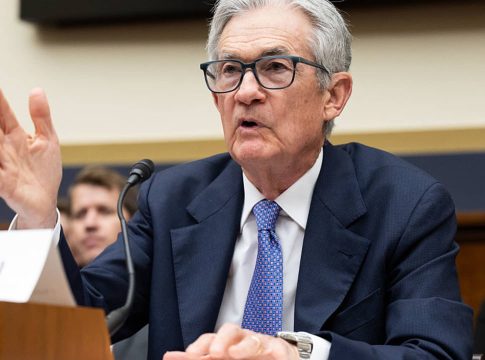Federal Reserve’s Stance on Inflation: What You Need to Know
During a recent testimony before Congress, Federal Reserve Chair Jerome Powell reinforced the central bank’s dedication to managing inflation. As uncertainty looms regarding the impact of tariffs on U.S. prices, Powell indicated that the Fed is in no rush to modify interest rates. Here’s a breakdown of his remarks and what they mean for your finances.
Economic Landscape: Stability Amidst Uncertainty
Powell characterized the economy as robust, highlighting that the labor market is nearing full employment. However, he acknowledged that inflation rates remain above the Fed’s ideal target of 2%. This discrepancy raises concerns, particularly regarding how tariffs—put in place by the Trump administration—might affect future price stability.
Key Takeaway: The Fed is carefully evaluating the economic climate before making any policy shifts, prioritizing a cautious approach.
The Tariff Dilemma
Powell underscored that tariffs historically lead to immediate price increases but may not always spark prolonged inflation. The overall impact of these tariffs is still uncertain, prompting the Fed to hold back on adjustments until more data is available.
In conversations with lawmakers, Powell noted, “We’re just trying to be careful and cautious.” This strategy aims to safeguard consumers, balancing the dual goals of maintaining full employment and promoting low inflation.
Market Reactions and Future Projections
Despite the Federal Open Market Committee’s (FOMC) recent unanimous decision to keep rates steady, opinions among committee members show divergence on future rate cuts. In a recent poll, some members leaned towards potential cuts later this year, while others remained more conservative in their outlook.
A glance at the futures market indicates a mere 23% probability of a rate cut by the end of July, with a greater chance projected for September. This suggests that if you’re planning for future investments or loans, staying informed about these developments could be crucial.
Pressure from Politics
Powell faced tough questions from lawmakers about whether political pressure influenced Fed policies. He firmly stated that political factors do not dictate the Fed’s decisions, stressing, “We’re doing our jobs.” This emphasis on objectivity aims to bolster public confidence in the Fed’s independence.
What This Means for You
-
Be Prepared for Rate Fluctuations: If you’re considering a loan or mortgage, stay vigilant about the Fed’s moves. While interest rates are currently stable, changes may come based on future economic indicators.
-
Budget Smartly: Given the potential rise in inflation, consider adjusting your budgeting strategies. Keep an eye on prices, especially for goods impacted by tariffs, and adjust your spending accordingly.
- Stay Informed: Knowledge is power. Following reliable financial news sources will help you navigate this unpredictable economic landscape more effectively.
As the Fed continues to monitor the economic environment, staying informed can help you make sound financial decisions for yourself and your family.

Writes about personal finance, side hustles, gadgets, and tech innovation.
Bio: Priya specializes in making complex financial and tech topics easy to digest, with experience in fintech and consumer reviews.

